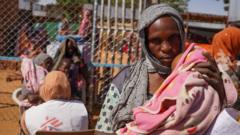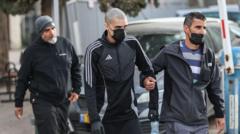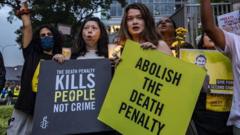Zakia Jafri, a prominent figure in the fight for justice after the 2002 Gujarat riots that claimed over a thousand lives, passed away on February 2 at her daughter's residence in Ahmedabad, India.
Zakia Jafri: A Tireless Advocate for Justice Passes Away at 86

Zakia Jafri: A Tireless Advocate for Justice Passes Away at 86
Zakia Jafri, known for her relentless pursuit of justice following the tragic murder of her husband in the Gujarat riots, dies at 86.
Zakia Jafri, who became a pivotal human rights advocate after the brutal death of her husband, Ehsan Jafri, during the sectarian violence in Gujarat, has died at the age of 86. Her son, Tanveer Jafri, confirmed her passing, which followed a lifelong commitment to seeking justice for him and other victims of the riots that unfolded in 2002.
The riots were ignited by a devastating fire on February 27 that engulfed a train carrying Hindu pilgrims, leading to accusations against Muslims, which fueled widespread violence across Gujarat. Ehsan Jafri, a well-respected lawyer, union leader, and former parliamentarian, was among the many brutally killed. This personal tragedy propelled Zakia into a relentless legal battle for nearly two decades, wherein she aimed to hold accountable those she accused of facilitating the riots, including Narendra Modi, who was then the Chief Minister of Gujarat and is now India’s Prime Minister.
Throughout her arduous struggle, Zakia embodied hope and resilience, as noted by human rights activist Teesta Setalvad, who highlighted her role as a source of strength for survivors. Born on January 15, 1939, in Madhya Pradesh, Zakia lived through tremendous personal and communal challenges but continued to fight tirelessly for justice and remembrance of the victims of the violent upheaval.
Zakia's legacy is marked not only by her unwavering courage in the face of loss but also by her contribution to the ongoing discourse surrounding justice and accountability in India. Many remember her as a symbol of dignity and perseverance for all those affected by the tragic events of 2002.
The riots were ignited by a devastating fire on February 27 that engulfed a train carrying Hindu pilgrims, leading to accusations against Muslims, which fueled widespread violence across Gujarat. Ehsan Jafri, a well-respected lawyer, union leader, and former parliamentarian, was among the many brutally killed. This personal tragedy propelled Zakia into a relentless legal battle for nearly two decades, wherein she aimed to hold accountable those she accused of facilitating the riots, including Narendra Modi, who was then the Chief Minister of Gujarat and is now India’s Prime Minister.
Throughout her arduous struggle, Zakia embodied hope and resilience, as noted by human rights activist Teesta Setalvad, who highlighted her role as a source of strength for survivors. Born on January 15, 1939, in Madhya Pradesh, Zakia lived through tremendous personal and communal challenges but continued to fight tirelessly for justice and remembrance of the victims of the violent upheaval.
Zakia's legacy is marked not only by her unwavering courage in the face of loss but also by her contribution to the ongoing discourse surrounding justice and accountability in India. Many remember her as a symbol of dignity and perseverance for all those affected by the tragic events of 2002.



















